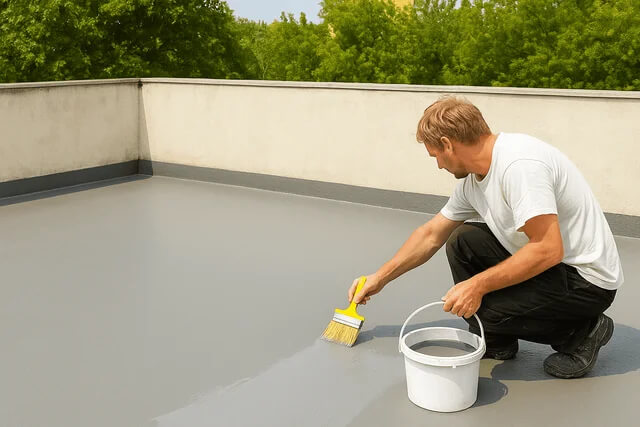
When water sneaks into your basement, it can quietly destroy your home’s foundation and your peace of mind. Cracks, damp walls, and musty odors are not just minor inconveniences—they’re early warning signs of deeper issues. That’s why choosing the right basement waterproofing services is one of the smartest decisions any homeowner can make. But with so many contractors claiming to be the best, how do you know who to trust?
This guide breaks down everything you need to know—from spotting warning signs to understanding waterproofing methods, comparing service providers, and ensuring long-term protection.
Why Basement Waterproofing Matters More Than You Think
A dry basement is more than just a comfort—it’s a cornerstone of structural integrity. Without proper waterproofing, moisture can slowly compromise your home’s foundation, leading to serious (and costly) damage over time.
Here’s why basement waterproofing should never be ignored:
- Prevents structural damage: Water weakens concrete, leading to cracks and foundation shifts.
- Protects your health: Moisture breeds mold, mildew, and allergens that can harm indoor air quality.
- Preserves property value: A dry, clean basement increases resale value and buyer confidence.
- Reduces energy bills: Moisture increases humidity, forcing your HVAC system to work harder.
In essence, waterproofing your basement isn’t just maintenance—it’s an investment in your home’s longevity.
Common Signs You Need Professional Basement Waterproofing Services
Not all leaks are obvious. Sometimes, your basement whispers before it screams. Keep an eye out for these telltale signs:
- Damp or musty smell: Persistent odors often signal hidden moisture behind walls or under flooring.
- White chalky residue (efflorescence): This appears when water evaporates and leaves mineral deposits.
- Peeling paint or bubbling walls: A sure sign of trapped moisture trying to escape.
- Pooled water or wet patches: Indicates direct seepage through cracks or joints.
- Rusting appliances or metal fixtures: High humidity is taking its toll.
If you notice even one of these symptoms, it’s time to call in a waterproofing expert before minor leaks turn into major repairs.
Understanding Different Types of Basement Waterproofing
There’s no one-size-fits-all solution when it comes to waterproofing. The right approach depends on your home’s structure, soil type, and the severity of water intrusion. Let’s explore the main types:
1. Interior Waterproofing
This method focuses on managing water that has already entered your basement. It includes:
- Interior drainage systems
- Sump pump installation
- Vapor barriers
- Dehumidifiers
Best for: Homes with mild to moderate seepage problems.
2. Exterior Waterproofing
The most comprehensive (and often expensive) method, exterior waterproofing involves excavating around the foundation to apply waterproof coatings or membranes.
Best for: Persistent leaks and basements below the water table.
3. Crack Injection
This technique seals small foundation cracks using epoxy or polyurethane foam.
Best for: Targeted repairs on visible cracks.
4. Drainage System Installation
If your property has poor soil drainage, professionals may install French drains or regrade the landscape to redirect water away.
Best for: Preventing surface runoff from reaching basement walls.
Understanding these methods helps you ask informed questions—and avoid overpaying for unnecessary work.
How to Choose the Right Basement Waterproofing Contractor
Selecting the right contractor can make or break your waterproofing project. Follow these practical steps to find a trusted expert:
1. Check Credentials and Experience
- Ensure the company is licensed, insured, and certified in waterproofing techniques.
- Ask how long they’ve been in business and whether they specialize in residential basements.
2. Read Reviews and Testimonials
Online reviews, Google ratings, and word-of-mouth recommendations can reveal a lot about reliability and quality.
3. Ask for a Thorough Inspection
A reputable contractor will never quote over the phone. They should inspect your property, identify the root cause, and propose customized solutions.
4. Compare Estimates
Get at least three quotes. Be wary of offers that seem too good to be true—they often are.
5. Review Warranty and Service Terms
Good waterproofing companies stand by their work with multi-year or even lifetime warranties. Read the fine print carefully.
Questions to Ask Before Hiring Basement Waterproofing Services
When interviewing potential contractors, come prepared with the right questions. This will save you headaches later.
- What type of waterproofing system do you recommend and why?
- How long will the project take?
- Do you provide a written warranty?
- Can I see photos or references from previous projects?
- What maintenance will be required afterward?
The answers should be clear, transparent, and free from jargon. If a contractor dodges questions, that’s a red flag.
Interior vs. Exterior Waterproofing: Which One Should You Choose?
Deciding between interior and exterior waterproofing depends on your unique situation. Here’s a quick comparison to guide you:
| Criteria | Interior Waterproofing | Exterior Waterproofing |
| Cost | Moderate | High |
| Installation Time | 1–3 days | 3–10 days |
| Disruption | Minimal | Significant (excavation involved) |
| Effectiveness | Prevents internal damage | Stops water at the source |
| Ideal For | Minor leaks | Major water infiltration |
Tip: In many cases, a hybrid approach—combining interior drainage with exterior sealing—offers the best protection.
The Cost of Basement Waterproofing Explained
One of the most common questions homeowners ask is: “How much will it cost?”
While prices vary based on your location, basement size, and the chosen method, here’s a general idea:
- Crack injection: ₹10,000 – ₹25,000 per crack
- Interior drainage system: ₹80,000 – ₹2,00,000
- Exterior waterproofing: ₹2,00,000 – ₹5,00,000+
- Sump pump installation: ₹30,000 – ₹60,000
Keep in mind that quality waterproofing is not a cost—it’s protection against future damage that could cost five times more to repair.
DIY Waterproofing vs. Professional Help
Tempted to try a DIY fix? While small touch-ups can be handled at home, waterproofing is rarely a DIY-friendly job.
Here’s why:
- You might misdiagnose the source of leaks.
- Incomplete repairs can trap moisture, making the problem worse.
- Professionals use specialized equipment and industrial-grade sealants for lasting results.
DIY is fine for: Applying sealant paint or improving exterior drainage.
Hire a pro for: Structural cracks, persistent dampness, or foundation leaks.
Maintenance Tips for a Dry and Healthy Basement
Even the best waterproofing won’t last forever without routine maintenance. Here are simple habits to keep your basement in top shape:
- Inspect gutters and downspouts: Keep them clean and directed away from your foundation.
- Regrade soil around your home: Ensure it slopes away from walls.
- Test your sump pump: Especially before monsoon season.
- Check for new cracks annually: Early intervention saves money.
- Control humidity: Use a dehumidifier to prevent mold growth.
Consistency is key—routine upkeep keeps problems small and manageable.
How to Avoid Common Waterproofing Scams
Unfortunately, some contractors exploit urgent situations to overcharge homeowners. Protect yourself by recognizing these warning signs:
- High-pressure sales tactics: Reputable companies give you time to decide.
- No written contract: Always get everything in writing.
- Vague guarantees: Look for detailed warranty terms.
- Cash-only offers: A big red flag—always insist on official receipts.
Remember, transparency and professionalism go hand in hand.
The Environmental Impact of Waterproofing
Modern waterproofing methods are becoming increasingly eco-conscious. Instead of harsh chemicals, many companies now use eco-friendly membranes and water-based sealants that minimize toxicity.
Additionally, proper waterproofing reduces structural waste, energy usage, and indoor pollutants—making your home safer for both your family and the planet.
When to Schedule Basement Waterproofing
Timing matters. The best time to waterproof your basement is before problems escalate.
Ideally, schedule inspections:
- Before monsoon or rainy season
- After noticing small cracks
- During new construction (for long-term protection)
Preventive waterproofing is always cheaper and easier than reactive repairs.
Case Study: From Damp Disaster to Dry Comfort
Take the story of Mr. Sharma from Delhi. After every heavy rain, his basement flooded, damaging furniture and flooring. He tried multiple quick fixes—sealant paint, new gutters—but the issue persisted.
Finally, he hired a professional team that installed an interior drainage system with a sump pump. Within two days, his basement was bone dry—and has stayed that way for years.
The lesson? Professional waterproofing isn’t just about fixing leaks; it’s about restoring comfort and confidence in your home.
FAQs About Basement Waterproofing
1. How long does basement waterproofing last?
A professionally installed system can last 20–30 years or more, depending on materials and maintenance.
2. Is waterproofing necessary for a new home?
Yes! Even new basements can leak if not properly sealed during construction.
3. Can waterproofing stop mold growth?
Absolutely. By eliminating moisture, you remove the root cause of mold formation.
4. How long does the process take?
Interior waterproofing usually takes 1–3 days, while exterior methods may take up to two weeks.
5. What’s the best waterproofing method?
It depends on your problem. A professional inspection is the only way to determine the ideal solution.
Final Thoughts: Investing Wisely in Basement Waterproofing Services
Your basement is more than just extra storage space—it’s a vital part of your home’s foundation. Ignoring leaks or dampness can quickly spiral into expensive repairs and health issues. By investing in professional basement waterproofing services, you’re not just keeping water out; you’re protecting your home’s strength, your family’s health, and your peace of mind.
Choose wisely, maintain regularly, and you’ll enjoy a dry, safe, and comfortable basement for decades to come.




